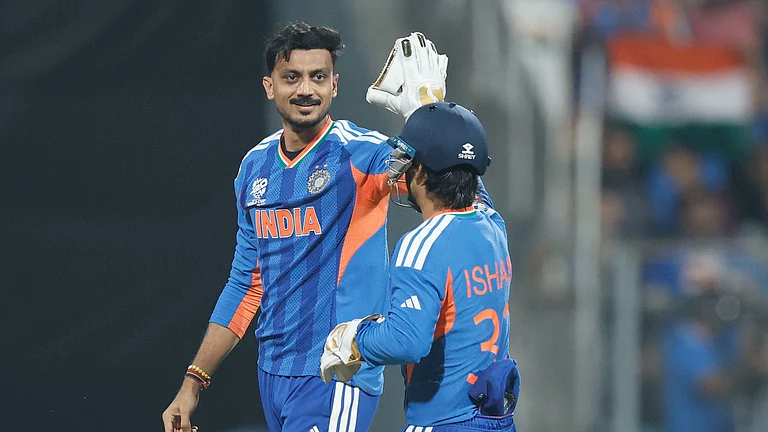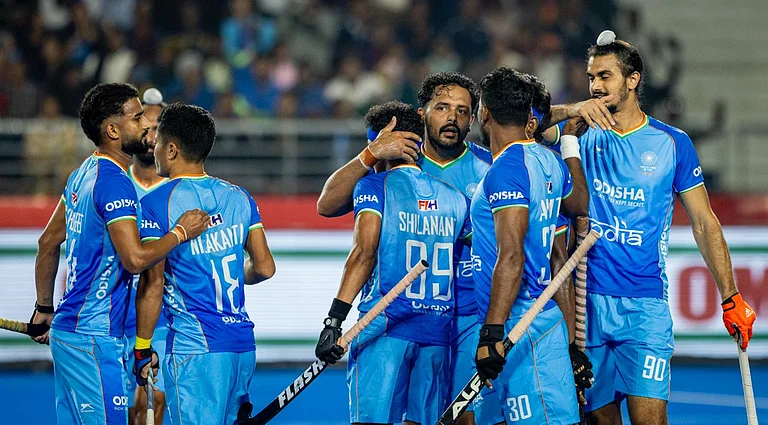Since the neighbouring countries are still not polio-free, India needs to remain vigilant and continue with its vaccination programme against the disease, Union Health Minister Mansukh Mandaviya said on Saturday, highlighting that door-to-door inoculation campaigns will be conducted to ensure that no one is left behind. The minister, who launched the National Polio Immunisation Drive for 2022 by administering polio drops to children below five years of age in the Ministry of Health, said over 15 crore children aged below five years will be vaccinated against the disease in the coming months.
"India's strategic fight against polio is a success story of the country's public health policy against vaccine-preventable diseases. We need to continue to be vigilant and ensure that every child under five years of age must get polio drops," he said. Under the leadership of Prime Minister Narendra Modi, the Universal Immunisation Programme is focussing to protect children from more diseases than ever before and has introduced several new vaccines like the Pneumococcal Conjugate Vaccine (PCV), the Rotavirus vaccine and the Measles-Rubella (MR) vaccine in the recent past, Mandaviya added.
Further, to provide additional protection to children, the government has also introduced the injectable Inactivated Polio Vaccine into its routine immunisation programme, he pointed out. "While we are making efforts to protect our children from more and more diseases, it is important that all vaccines under the programme reach every child of our country," the minister said.
Stressing the importance of observing the National Immunisation Day, he said, "The aim of Swasth Bharat can only be achieved if our children are healthy. The objective of Mission Indradhanush or Polio Vaccination Drive is to protect our children against such deadly diseases. Since our neighbouring countries are still not polio-free, we should remain vigilant and continue the vaccination programme.
"Over 15 crore children of age less than five years will be vaccinated in the coming months. Door-to-door vaccination campaigns through robust micro-planning will be done to ensure that no one is left. I congratulate all the healthcare workers, stakeholders like WHO, UNICEF, Rotary Club and NGOs for making this immunisation programme a Lok Bhagidari Andolan as envisioned by our prime minister. I request all families to come forward to get their children vaccinated." Union Health Secretary Rajesh Bhushan highlighted the achievements and the way forward to implement the National Immunisation Programme.
"Though India is polio-free, it is still our responsibility to remain vigilant. Transit teams have been deployed in all the states to ensure immunisation and continuous pulse polio implementation at borders is happening as our neighbouring countries are still reporting polio cases," he said. The Polio National Immunisation Day 2022 (NID) will be organised across the country on Sunday (February 27). India conducts one nationwide NID and two Sub-National Immunisation Days (SNIDs) for polio every year to maintain population immunity against wild poliovirus and to sustain its polio-free status.
During the polio NID, over 15 crore children will be covered across all 36 states and Union territories in 735 districts. During the drive, polio drops will be provided to children through seven lakh booths across the country. Approximately 23.6 crore houses will be visited by nearly 24 lakh volunteers and 1.5 lakh supervisors. Meghalaya has already conducted the drive on January 24, while Mizoram plans to conduct it on March 1 due to local reasons. The election-bound states of Uttar Pradesh and Manipur plan to organise the polio NID on March 20 and March 24 respectively.
The booth activities will be followed by house-to-house surveillance (mop-up rounds) over the next two to five days to identify and vaccinate children who missed getting vaccinated at the booths. Vaccination teams have also been deployed at bus terminals, railway stations, airports and ferry crossings to vaccinate children in transit to ensure that no child misses the life-saving dose. India has been free of polio for more than a decade, with the last case of wild poliovirus reported on January 13, 2011.
With PTI Inputs


























